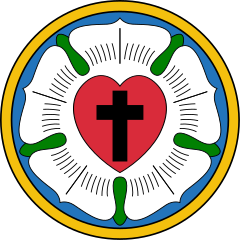Learn How Lutherans Departed from Roman Catholic Teachings
Below is a concise overview of key Lutheran beliefs and practices, organized into clear sections for quick reading.
Baptism
Luther retained that baptism is necessary for spiritual regeneration, without stipulating a single required form. Today, Lutherans practice both infant baptism and believer’s baptism. Baptism is typically done by sprinkling or pouring rather than immersion. Most Lutheran bodies accept valid baptisms from other Christian traditions, so re-baptism is generally unnecessary.
Catechism
Luther wrote two catechisms. The Small Catechism explains the Ten Commandments, Apostles’ Creed, Lord’s Prayer, baptism, confession, communion, and daily prayers. The Large Catechism treats these topics in greater depth.
Church Governance
Luther emphasized local governance rather than centralized authority. Some Lutheran traditions maintain bishops, but they do not exercise the same centralized control found in Roman Catholicism.
Creeds
Lutherans confess three historic Christian creeds: the Apostles’ Creed, the Nicene Creed, and the Athanasian Creed, summarizing core doctrine.
Eschatology
Lutherans generally do not hold to a distinct Rapture event separate from Christ’s return. They believe Christ will return once, visibly, gathering all believers (including the dead in Christ). The tribulation is understood as the ongoing suffering Christians experience until that day.
Heaven and Hell
Lutherans view heaven and hell as real. Heaven is eternal life with God; hell is eternal separation from God.
Individual Access to God
Luther taught the “priesthood of all believers,” meaning each person can approach God through Scripture and faith, without the necessity of priestly mediation.
The Lord’s Supper
Luther retain


